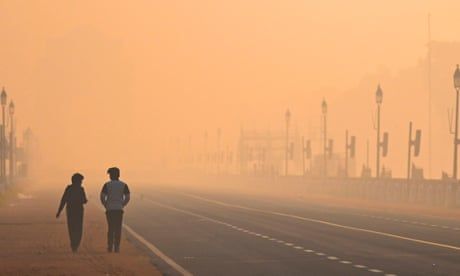
Families are at war in the new India, in a novel raising complex questions about patriotism, nationalism and how the country is changing
In Delhi the seasons are “human-fucked”, explains Tara Saxena, the narrator-protagonist of The Tiger’s Share. Autumn is the “season of smogs and mellow murderousness”; once the smoke arrives in October, “we could no longer see the sky”. Over summer the Loo, a dry “caramelising” wind, slurs through the city, while inside their flats people “lived as cheese and chocolate do in India, refrigerated”. Now and then comes the brief respite of rain. In its aftermath, people head out into the parks to enjoy the momentary cool, the only time when the air is “useably fresh, like a banana that is only one-third rotten”.
Food-related imagery abounds in Keshava Guha’s second novel; you are never allowed to forget that all things – produce, people, every species – are perishable, that from the moment of our birth the decay is inbuilt, and that such a truth is all the more exaggerated in a city where trash mountains leaking toxic gases rise up next to hospitals where babies take their first breaths.
Continue reading...